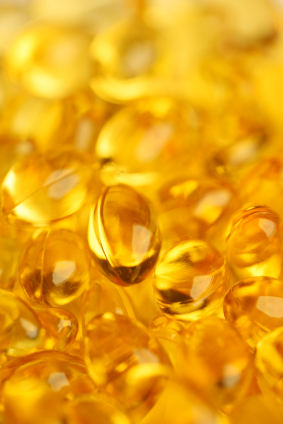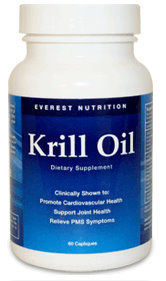MsFLASH and omega-3s
In early August, I posted two pieces about MsFLASH –Menopause Strategies: Finding Lasting Answers for Symptoms and Health — a network of studies evaluating potentially promising treatments for common menopausal symptoms. Started by the National Institutes of Health, MsFLASH comprises five research centers in Boston, Oakland, Philadelphia, Seattle and Indianapolis who are exploring various interventions for hot flashes, night sweats, mood disorders and sexual issues.
One of these trials set out to evaluate the role of omega-3 fatty acids in menopause, more specifically, whether or not omega-3s would be useful for alleviating hot flashes in women who prefer alternative strategies. Although the benefits of omega-3s are widespread, researchers have not been able to prove that they work against hot flashes. Consequently, over three months, 346 women took either three omega-3 capsules or placebo daily in addition to yoga, aerobics or usual activity. The women reported having roughly 8 hot flashes a day at the start of the study.
Unfortunately, the verdict is still out. Taking omega-3s appeared to have little effect on hot flash frequency or bother; declines in both measures were similar among women whether they were taking the fish oil or placebo (an average 35% decline in both groups and in both variables). What’s more, taking daily fish oil supplements didn’t appear to help sleep or mood. Personally, I find the lack of effect on mood surprising since there are data showing a benefit on depression, especially when it comes to DHA. However, even the researchers acknowledge that the lack of effect here might be due to the degree of depressive or anxiety symptoms that the women in this study experienced.
Regardless, if you are taking fish oils and have seen an improvement in symptoms, I would love to hear from you. Do they help? The search for the magic bullet for hot flashes continues but in the meantime, the more we share, the more we collectively know.
Read More
Dr. Seuss, omega-3s and brains!
I am not jumping on the Dr. Seuss bandwagon, I promise! But when I ran across this study on omega-3 fatty acids, the aging brain and memory, the following lines from Oh! The Places You’ll Go came to mind:
You have brains in your head. You have feet in your shoes. You can steer yourself any direction you choose. You’re on your own. And you know what you know. And YOU are the one who’ll decide where to go…” — Oh! The Places You’ll Go. Dr. Seuss
Damn our aging brains, right?! Coupled with waning hormones, daily stressors and even weight gain, and many women of ‘a certain age’ are left with a veritable mindless meld cognitive decline and memory issues that only seem to worsen over time. And there’s nothing that can be done.
Think again. Researchers say that low levels of omega-3 fatty acids may accelerate the rate at which our brains age and even cause lapses in thinking and memory. This latest bit of information comes from an analysis of from 1,575 women participating in the ongoing Framingham Study. Women in this portion of the study (who were, on average 67 years old) had their blood drawn and examined for concentrations of omega-3s in red blood cells, underwent brain MRI, and participated in battery of cognitive-psychological tests. The findings? Those with the lowest levels of docosahexaenoic acid (DHA) had lower brain volumes compared to women who had higher levels. According to one of the lead study investigators. Dr. Zaldy Tan, this distinction “is equivalent to about two years of structural brain aging.” Moreover, lower DHA and ecosapentoic acid (EHA) levels were also linked to declines in the ability to solve problems, multitask and think abstractly – all of which are tied to visual memory and so-called “executive function,” a concept that refers to the ability to connect past experiences with present action. Humans use executive function to plan, organize, strategize, focus and remember details and manage time.
These findings are critical because they add to a growing body of research that show that omega-3 fatty acids are essential for brain health, possibly due to their positive actions on blood vessels in the central nervous system. In fact, clogged arteries and stroke are associated higher risks of dementia and cognitive decline, so the benefits of omega-3s may relate to how they can help to lower blood pressure, reduce stroke risk, decrease inflammation and reduce blood fat levels. The ongoing question is always diet versus supplements. And while diet is sure to improve the body’s concentrations of omega-3s, it can be difficult to maintain the three times a week regimen.
Personally? I have gravitate towards Krill oil because it doesn’t cause the ‘burps’ and is environmentally friendly. But as a dietician friend recently pointed out to me, the levels of DHA in Krill oil are relatively low, meaning that if I want to slow down my aging brain, I may need to find sources of DHA to supplement what I’m already taking (e.g. from seaweed or coldwater fish).
Dr. Seuss made it abundantly clear that we have choices and it is those choices that will steer the direction we go. Want to save your brain? It looks as though the addition of omega-3s might help.
Read MoreOmega-3s and depression
According to recent estimates, more than 20% of women undergoing menopause have major depressive disorder. In fact, mood disorders and depression affect a disproportionate amount of women in the peri- and postmenopausal stages compared to women in pre-menopause. Moreover, these mood disorders tend to occur in conjunction with hot flashes.
While researchers have yet to discover the cause of the depression/mood surge during menopause, they continue to explore therapeutic strategies that might help to take the edge off. And surprisingly, numerous studies actually point to the value of omega-3 fatty acids — eicosapentaenoic acid (EPA) and docosahexaenoic acid (DHA) — for alleviating depression. Besides wellbeing, one of the reasons this is so important is that research has linked depression with other serious conditions including heart disease and stroke. The one thing that all these conditions have in common is that they are believed to be caused, at least in part, by an inflammatory response by the body. One particular action of omega-3 fatty acids is that they have been shown to lower inflammation, which makes them potentially useful in treating disease.
So, can omega-3s help stave off depression in menopausal women? In a very small study published in the online edition of Menopause, peri- or postmenopausal taking daily omega-3 fatty acids (Lovaza, 2 g daily) for 8 weeks had significant declines in depression scores, number of daily hot flashes and hot flash interference scores. During the course of the study, 70% of women responded, and those whose depressive symptoms declined also experienced declines in hot flashes, indicating both a connection between the two and a possible role for omega-3s in menopause.
However, this study was very small, enrolling only 20 women and more evidence is needed with larger numbers of women before omega-3s can be recommended as a treatment for mood and hot flashes during menopause. Moreover, it’s essential to note that a thorough analysis of scientifically sound studies has recently pointed to the EPA component as driving as much as a 56% reduction in depressive symptoms, that is, if the supplements used contain more than 50% of standardized EPA or pure EPA. Therefore, when it comes to fish oils, the ratio of EPA to DHA may play an important role.
I’m excited because this study brings us another step closer towards demonstrating that menopausal symptoms can indeed, be effectively alleviated without hormonal therapy.
Read MoreFish oil. One of these is not like the others…
[Photo credit: Australian Government Department of Sustainability, Environment, Water, Population and Communities. Australian Antarctic Division. ™2004.
Fish oils. Love em or hate em, they’re here to stay. And researchers will continue to research the hell out of these substances — namely omega 3 fatty acids — until they solve the question of ‘do they or don’t they?’ Meanwhile, true confession: as much as I’ve attempted to take fish oil supplements or flaxseed oil per health practitioner recommendations, I’ve always failed horribly. It’s the burp factor. They make me burp and I taste fish all day long. Can’t stand it. Or Stomach it. Or something.
And then I was contacted by the folks over at Everest Nutrition Corporation about its krill oil supplement. And I’ve been reborn.
Let me give you a brief overview of omega-3s and then the lowdown on krill. And why I’ve been converted.
Early last year I wrote a post on research that examined if some of the most commonly used ingredients in supplements may or may boost certain components of mental energy. Here’s an excerpt (although if you’d like to read the post in its entirety, you can find it here):
Omega-3 fatty acids I love fish oils. Researchers continue to study them because their utility is so broad, although the source of omega-3, dosage and ratio of EPA and DHA appear to be important factors in terms of mood (i.e. depression in particular) and mental energy. Overuse of fish oils can also impair the ability of blood to clot and depress overall immune functioning. Still, out of the dietary components that researchers studied, omega-3′s were by far the one most backed by clear data. Most recently, they’ve also been shown to help prevent stroke. In so far as mental energy goes, the researchers note that evidence suggests that fish oils may help delay or reduce cognitive decline in the elderly or improve verbal fluency. Less clear is whether this benefit is stronger if the they are taken earlier in life before cognitive decline. And of course, there is litte agreement on whether or not fish oils supplements convey the same benefits as obtaining the through dietary sources. And, if you choose to obtain your omega-3s through supplementation or pure oil, there is the issue of overfishing of the world’s oceans and how fish oil preparations may contribute to the problem.
So what about fish oil supplements derived from krill?
Krill are small, shrimp-like crustracean that feed on microscopic organisms in the ocean called phytoplankton. Compared to other sources of omega-3s, krill is in less danger of being overfished, one reason why it is so attractive. However, the omega 3s in krill oil attach themselves to fats the form cell membranes (phospholipids), rather than triglycerides, which theoretically makes krill derived omega-3 fatty acids more effective reducing fats in the heart and liver. Another benefit of krill oil is that it contains an antixidant called astaxanthin, which helps protect the body from damage by UV rays, and can help reduce LDL-cholesterol levels while raising HDL-cholesterol levels. Moreover, astaxanthin crosses the blood brain barrier, meaning that it might be of use in protecting eyes, the brain and the central nervous system from circulating free radicals.
However, buyer beware! Not all krill oils are created equal and you want to be certain that what you’re buying meets the highest standards in terms of:
- Meeting content claims about levels of ecosapentaenoic acid (EPA), doxosahexaenoic acid (DHA) and phospholipids
- Meeting claims about how much astaxanthin is delivered per capsule
- If the formulation meets standards for purity, safety and cleanliness per International Krill Oil Standards (IKOS)
- If the product is stable
- If the product meets the standards for contents of heavy metals and mercury
You also need to know that krill oil should not be taken by people with shellfish allergies. Additionally, some people report having gastrointestinal issues, e.g. diarrhea, loose stools when taking krill oil; this is due to the fatty acid that is present in the oil, and may be alleviated by taking a lower dose. Like other forms of fish oil, krill oil may also thin the blood and impair its ability to clot, and in some cases, may interact with thyroid medication. Pregnant women should speak to their doctors before trying krill oil.
Like many other forms of omega-3 fatty acids, krill oil can be expensive. A 30-day supply of Everest Nutrition’s Krill Oil costs roughly $30 a month, which comes out to $1 a day or $.50 a capsule.
So, what do I think? I’m a believer. I have had physicians and other healthcare practitioners recommend that I take fish oil for as long as I can remember. And I haven’t because of the burp factor. I’m grateful to have discovered krill oil. And I highly recommend Everest Nutrition’s formulation, primarily because the manufacturer adheres to the highest of standards.
[Disclaimer: I was not paid to write this review of Everest Nutrition Krill Oil. However, company representatives did provide me with product to try.]
Read More
The path to healthy aging is paved with a healthy diet
Ladies, listen up! Have you heard the adage ‘a ripe old age?’ Well, researchers involved in the ongoing Nurses Health Study are reporting that an important key to healthy aging is diet. However, it’s not just any diet so before you convince yourselves that you’ve won the golden ticket, let me share that the focus is on modified Mediterranean, i.e. a diet rich in plant foods, whole grains, fish or omega-3 polyunsaturated fatty acids, a moderate intake of alcohol and a lower intake of red and processed meats.
For decades, experts have been sharing that people that follow a strict Mediterranean diet die less often from heart disease and cancer, have lower rates of stroke, cognitive impairment and depression and overall possess improved physical well-being and functioning. However, questions have remained with regard both to timing and also the exact dietary patterns.
Fortunately, a thorough review of dietary reports provided over a 15 year period by 10,670 women in their 50s and 60s shows that commitment to healthy eating in midlife provides women with a 40% greater likelihood of healthy aging.
So, what does ‘healthy aging’ mean exactly?
The researchers report that for the most part, and compared to ‘usual agers,’ healthy agers were free from chronic disease, were less likely to be obese and tended to suffer less from high blood pressure and high cholesterol. They also had fewer cognitive, physical or mental health issues or limitations. Most importantly, the benefits relied upon the ‘best of both worlds dietary habits,” i.e. a combination of an ‘alternative healthy eating index,’ (i.e. greater intake of veggies, less potatoes, fruits (excluding juice), whole grains, nuts, legumes, polyunsaturated fats and a lower intake of red or processed meats, juices, sugar, trans fats and sodium) and a traditional Mediterranean diet (i.e. veggies (excluding potatoes), fruits, nuts, whole grains, legumes, fish and monounsaturated fats, and a lower intake of red or processed meats and alcohol), which was found to boost health years later.
In addition to diet, another important takeaway from this information is the importance of the midlife time point: starting out on a healthy course in midlife predicted the likelihood of healthy aging, good health and overall well-being. The conclusion? No time like the present to make important dietary changes.
Read More











